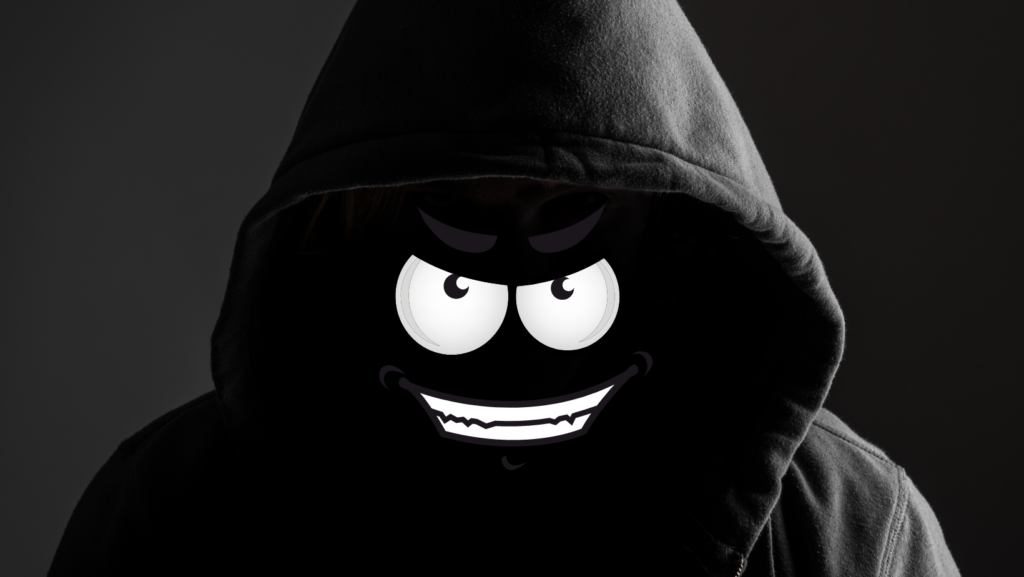How to Make a Good Villain Even Better

If you want to know how to make a good villain like you see in Marvel movies, anime like My Hero Academia, and books like Count Olaf from A Series of Unfortunate Events, then you are going to need to brush up on the elements of a good villain.
I would argue that there are some good villains out there but very few great villains.
In fact, a lot of villains in modern media tend to be evil for some inexplicable reason. They just were born this way, I guess?
But, as an author and writer, you have a duty to make a good villain even better by turning them into a great villain that people love to hate. You need to build connection, create a feasible morality, and set a compelling reason for the reader to care about the villain’s story.
So, let’s talk about how to make a good villain even better!
How to make a good villain better through connection
Connection is critical.
As you are trying to write a good villain you are probably trying to link them to the main character in some way–which is great–but that’s not how you make a great villain.
If you want to know how to make a good villain even better, then you are going to take this idea of connection even more seriously.
A villain that has no real reason for existing in the story is hard for the reader to connect with. Ask yourself these questions:
- What is their motivation?
- Why are they in this story?
- When did they become a villain?
- Where did their story and the hero’s story overlap?
- Who are they really?
- How did they become the villain of this story?
Here’s the thing…
…very few people are just purely evil.
In their mind, they are doing something “good.”
Good is subjective, and the rest of the world sees it as objectively evil. Thus, there is a clash between the villain and the eventual hero of the story.
This last question is the critical connection piece, though: how did they become the villain of this story?
Honestly, most villains don’t even need an elaborate backstory. They just need a reason for doing what they do and an inciting incident that pivots them to being the villain of this particular story.
Which will require them to have some kind of clearly defined morality.
Make a good villain better by having a defined morality
The Joker, nemesis of Batman, is a great villain because he has a clearly defined morality: he wants to live in a world where anyone can do anything they want at any time.
The Joker believes that chaos should reign supreme.
And if you want to learn how to make a good villain even better, then you are going to need to pay close attention to the morality of your villain.
As another example, in The Hunger Games novels, several characters go through role changes from being the villain one moment to one of the heroes in the next. All the while, their defined morality is what keeps us attached to their story.
It feeds our connection with them because we can connect the dots between what they believe, what is driving them, and the actions they are taking in that moment.
In these books, Gale goes from being a stereotypical hero-figure to becoming someone that Katniss can’t even tolerate. For better or worse, because of his morals, in her eyes, he has switched from hero to villain. And there are moments that challenge this paradigm shift throughout the books.
Let’s take a look at a bad example so you can learn how not to make a good villain…
…it pains me to say this, but Thanos might be one of the worst villains I can think of in pop culture right now.
His morality makes no sense. He wants to save everyone, by killing 50% of the universe.
He is gentle and kind to Gamora, but will slay entire worlds just because (we never really get a good explanation why he kills her entire race and planet, for example).
He isn’t insane because he has a logical line of reasoning for his actions as well as a plan to achieve his goals…but he has no moral or ethic that seems to decide his actions.
I am struggling to think of a more recent villain in pop culture that would be as poorly written (in terms of moral ethic they follow) than Thanos in the Marvel Cinematic Universe.
Which makes it incredibly difficult to care about his character and story in any way other than as an obstacle to be worked around or taken care of by the protagonists.
Write a good villain by making us care
The last step on how to make a good villain even better is to make us genuinely care about them.
This could be through their backstory or it could be through the way they interact and present themselves throughout the story.
It could just be their charming and charismatic personality.
Either way, you have to make your readers care about your villains.
Let’s look at Lord Voldemort in Harry Potter–why was he such a compelling villain?
We don’t get a ton of background information on him throughout the books and movies. We get snippets of why he hates muggles and mud-bloods, but not a lot.
But he is intricately connected with Harry, which is enticing for the two of them to be so similar and so deeply connected.
And he has a consistent morality. He even gives purebloods a fighting chance when they go up against him.
He wants a world ruled by those with true power. He is morally consistent.
And we get to see him form relationships (although toxic ones) with various characters throughout the series.
We are given every opportunity to find a point of interest that makes us care about him as a character, even when we hate him.
My favorite example of this is when you see villains who are doing the wrong things for the right reasons.
In My Hero Academia, there is a character called Stain. He isn’t just a villain. He is a hero killer. He believes that hero culture has become filled with fakes who just want a paycheck and the fame that comes along with the title of being a pro superhero.
Even other heroes in the series start to agree with his ideology and conviction. The Pro Hero culture in the series is rife with bad people trying to be heroes because of a variety of reasons.
Stain is doing the wrong things…but his reasoning is actually pretty solid, maybe even good. And because of that…he has a lot of fans both in the My Hero Academia universe and outside of it.
Whatever you do, the key for understanding how to make a good villain even better is to find a way for us to care about them even just a little bit more.
Go write a good villain, no, a great one!
We have dissected what makes a good villain and what makes a poorly-written villain. So go out and put it to the test.
If you’ve got a favorite villain then, I’d love to hear what makes them so great, in your mind. Feel free to comment below with any thoughts, questions, or disagreements!
If you like what you are reading and want to see more about what is going on at DSM Story Forge, then check out Stories From the Forge. It’s a monthly update on all things DSM (Story, Content, and Gaming).
Want to see more actionable tips on how to write and how to market your books as a self-publisher? The Story Forge is going to be right up your alley. It’s a sporadic newsletter about all things writing and publishing.
If you are an author who has a book ready to go or you are wanting some help with the self-publishing route, then I would love to see what it would look like to be a DSM Author (read the info on the page and click the link to fill out an interest form so we can start talking).


